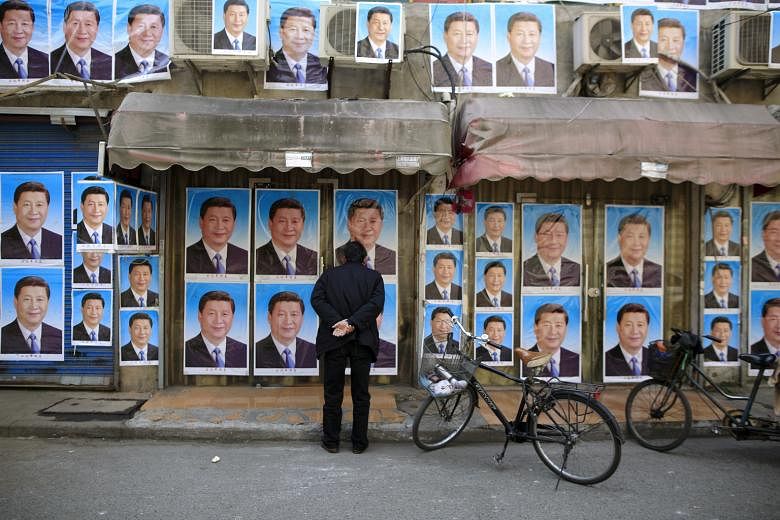Trump aside, biggest challenges the rising power will face are internal, say analysts
It will be a difficult and uncertain 2017 for China and President Xi Jinping, and it is not just because of the unpredictability of United States President-elect Donald Trump.
Granted, the uneasy Taiwan Strait is made more volatile by Mr Trump's breaking with a decades-old tradition in speaking directly with Taiwanese President Tsai Ing-wen and then questioning the "one China" policy that has been the basis for China-US relations since the two sides normalised ties in 1979.
China regards Taiwan as a breakaway province to be reunited with the motherland, while Ms Tsai is independence-leaning.
But the biggest challenges that the rising power will face in the coming year are internal, said analysts.
First and foremost is the leadership transition that will take place next year, likely in November, at the Chinese Communist Party's (CCP) 19th National Congress.
Already, the jostling for positions has begun, said Professor Huang Jing of the Lee Kuan Yew School of Public Policy.
Mr Xi will want to name his own successor at this congress for when he steps down in 2022, so that the reforms and policies he has started will be continued beyond his two terms as general secretary of the party, noted Professor Wang Gungwu, chairman of the East Asian Institute in Singapore, at a recent forum.
To this end, Mr Xi had himself designated as the core leader of the party, giving him the right to choose his own successor. But this is no guarantee that he will succeed in doing so.
But what Mr Xi will certainly continue in the new year is his anti-corruption campaign, part of broader efforts to clean up the corrupt CCP and reform the economy.
He signalled this when, at the party's sixth plenum in October, two regulations were updated. The move, he said, was meant to improve the rule of law, enhance party discipline and weed out errant behaviour among cadres, such as "money worshipping, hedonism and extravagance".
A third challenge for Mr Xi is to continue with reforms to restructure the economy at a time of slowing economic growth domestically and in an uncertain global situation, where there is a backlash against globalisation, which China has depended on for growth.
Having worked on cleaning up the local governments and state-owned enterprises, Mr Xi has begun to reform the core of economic activity, the financial sector, which is also "the most corrupted", said Prof Huang, adding that this would be an uphill task for the Chinese leader.
In comparison with the domestic challenges, Mr Xi will have an easier time in foreign relations, said analysts. Within the region, the centrepiece of the US pivot to Asia, the 12-nation Trans-Pacific Partnership trade deal, has been rejected by Mr Trump.
Sensing the opportunity that this presents, Mr Xi, at the Asia-Pacific Economic Cooperation summit in Peru last month, pledged China's backing for the Free Trade Area of the Asia-Pacific and the smaller Regional Comprehensive Economic Partnership, which excludes the US.
Beyond the region, with Mr Trump putting sceptics in charge of agencies dealing with climate change, China can be expected to take on a bigger role in combating global warming.
All is not rosy, what with Mr Trump's threat to slap huge tariffs on Chinese imports and his questioning of the "one China" policy.
China's immediate neighbourhood is less than stable.
North Korean leader Kim Jong Un is bent on going nuclear; South Korean President Park Geun Hye has been impeached by Parliament over an influence-peddling scandal; and Japan is seeking to give its military a bigger role beyond defending its shores.
To deal effectively with the external uncertainties, China and Mr Xi will need to first address its internal troubles, said Prof Wang.
"Only when conditions within are trouble-free can China safely deal with external aggression," he said.

